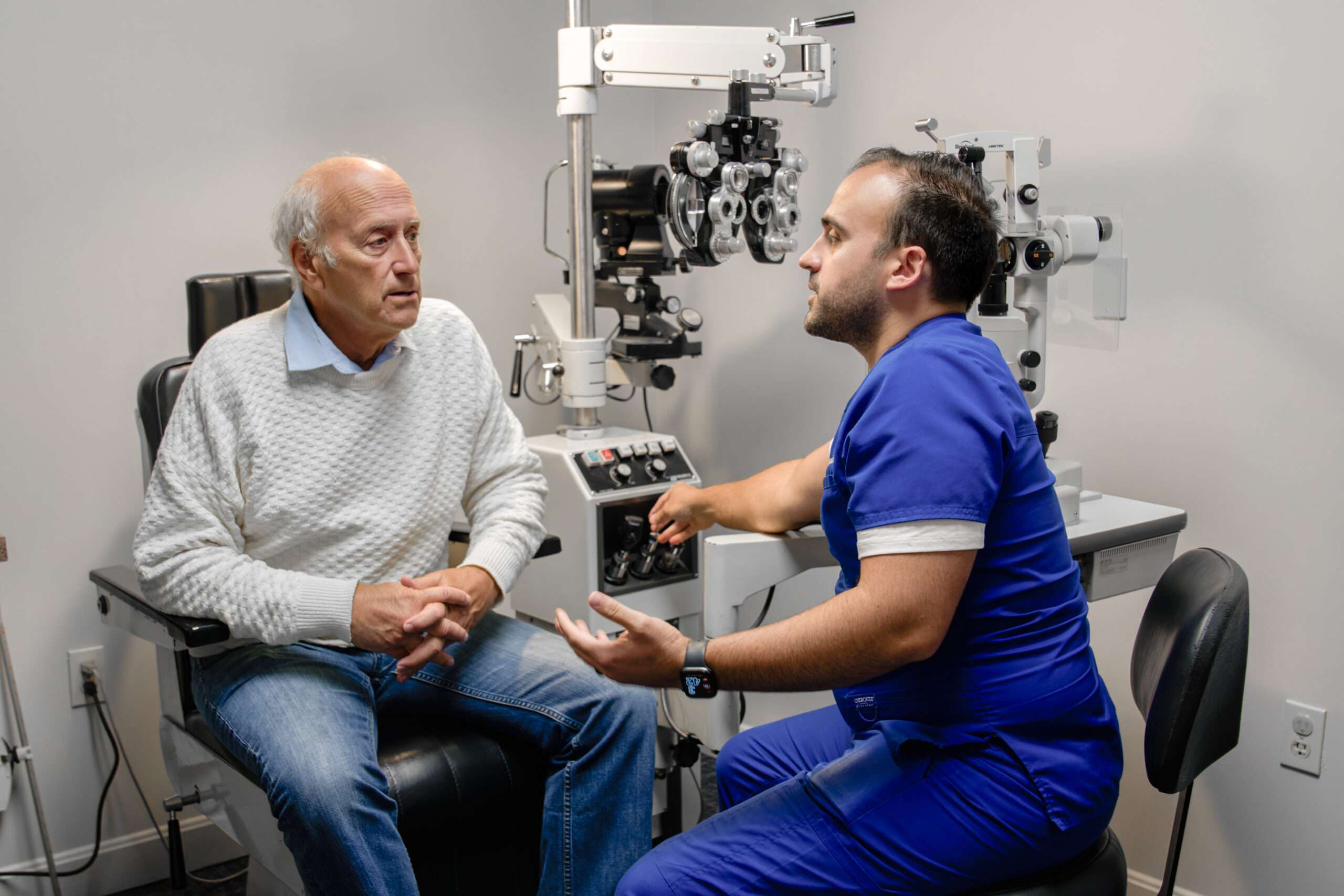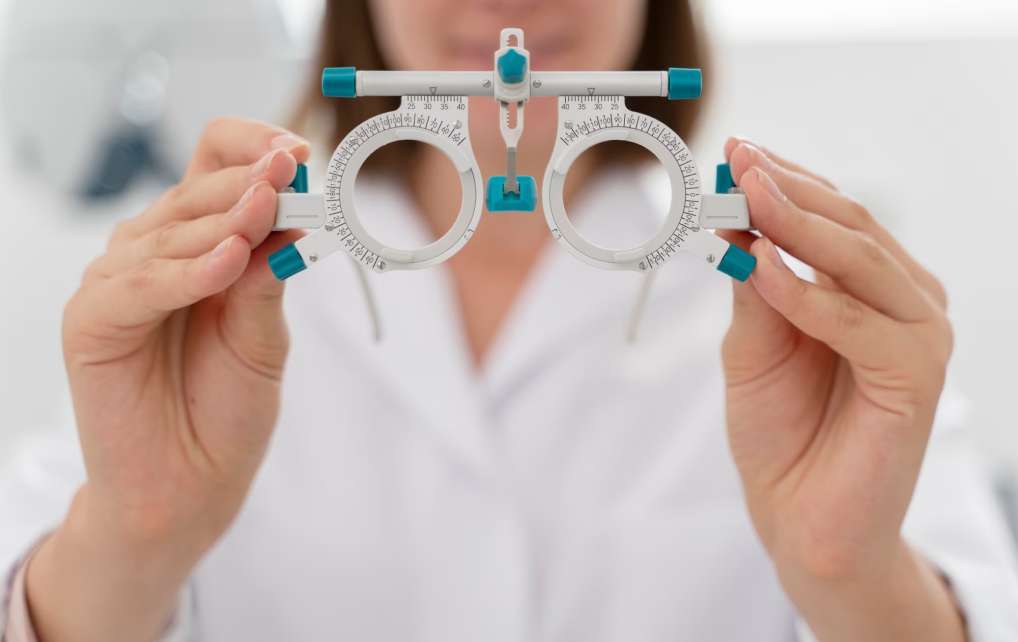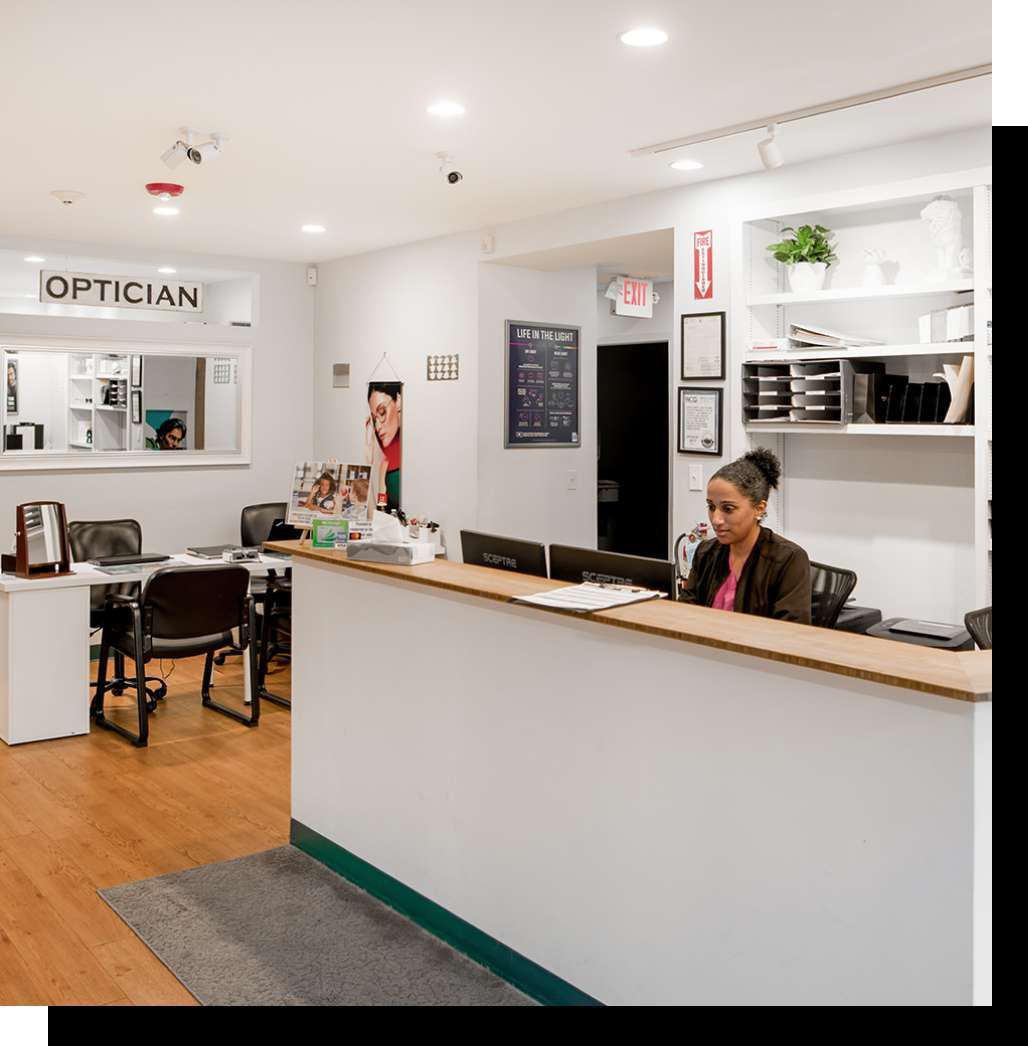Menu
Conditions like diabetic retinopathy can develop over time in people with Type 1 and Type 2 Diabetes.
The best way to protect and maintain the health and vitality of your eyes is by scheduling regular diabetic retinal eye exams with your trusted optometric eye care team.
Book a retinal eye exam today.
A diabetic eye exam is part of a medical or routine comprehensive eye exam. Your optometrist will screen for signs of diabetic retinopathy.
Your optometrist will assess for glaucoma as well — a common eye condition that patients with diabetes are at heightened risk for contracting.

26.43%: the percentage of people with diabetes who have been diagnosed with diabetic retinopathy
(Source: JAMA Opthalmology, 2023)


Regardless if you have diabetes, optometrists provide the following eye exams to all patients:
Routine comprehensive eye exams
These eye exams include an evaluation of the eye, tests for vision, and a dilated retinal exam. For people without extensive vision problems or issues, this is your standard annual eye exam.
Medical eye exams
These eye exams are recommended for patients with unique eye or vision problems. Patients with sudden eye pain, dryness, redness, or vision changes come to us for medical eye exams.
If your optometrist recommends you receive an additional dilated retinal exam in addition to your regularly scheduled annual eye exam retinal dilation, the subsequent retinal exam would be considered a medical eye exam.
Most people with diabetes should see their optometrist once a year for a dilated eye exam and to test for other diabetic retinal conditions and eye issues.
Our recommended schedule

Within 5 years of diagnosis: Dilated comprehensive eye exam

ASAP after diagnosis: Dilated comprehensive eye exam, as people with Type 2 Diabetes may already have retinopathy.

The first trimester: Dilated eye exam and follow-up eye exams throughout pregnancy and the postpartum period (as recommended by your optometrist).

Varies: Eye exam scheduling will depend on health conditions, history of smoking, or high blood sugar; more frequent exams may be needed.
We’ve compiled a list of the most common questions asked by many of our patients
We recommend budgeting about 30 minutes to an hour for your diabetic eye exam. Depending on your overall health, your optometrist may ask additional questions while conducting the exam.
In most cases, the dilating eye drops will begin to take effect in about 15 minutes or under, but this timeframe may fluctuate.
Complications of diabetic retinopathy can cause permanent blindness if the retinopathy is not diagnosed and treated.
Fortunately, when problems are caught early, routine follow-up care can help prevent or reduce vision loss resulting from diabetic retinopathy.

We recommend budgeting about 45 minutes to one hour for your appointment.




Our WeCare optometrists have nearly 40 years of experience working with adults and families. Our optometrists are trained in and have extensive background knowledge on ocular care. We treat each patient with compassion, kindness, and warmth.
Coupled with our friendly patient navigator team, our optometrists will carefully consider your comfort every step of the way. We encourage you to let our team know how you’re feeling throughout the exam process.
Whatever your vision care needs may be, our doctor and patient navigator team is dedicated to providing you with nothing less than the best optical care, because at the end of the day, our vision is to help you with yours.
A Family-Focused, Community-Centered Eye Clinic

Discover what WeCare’s Providence, RI optometrists can do for you! You won’t believe your eyes..